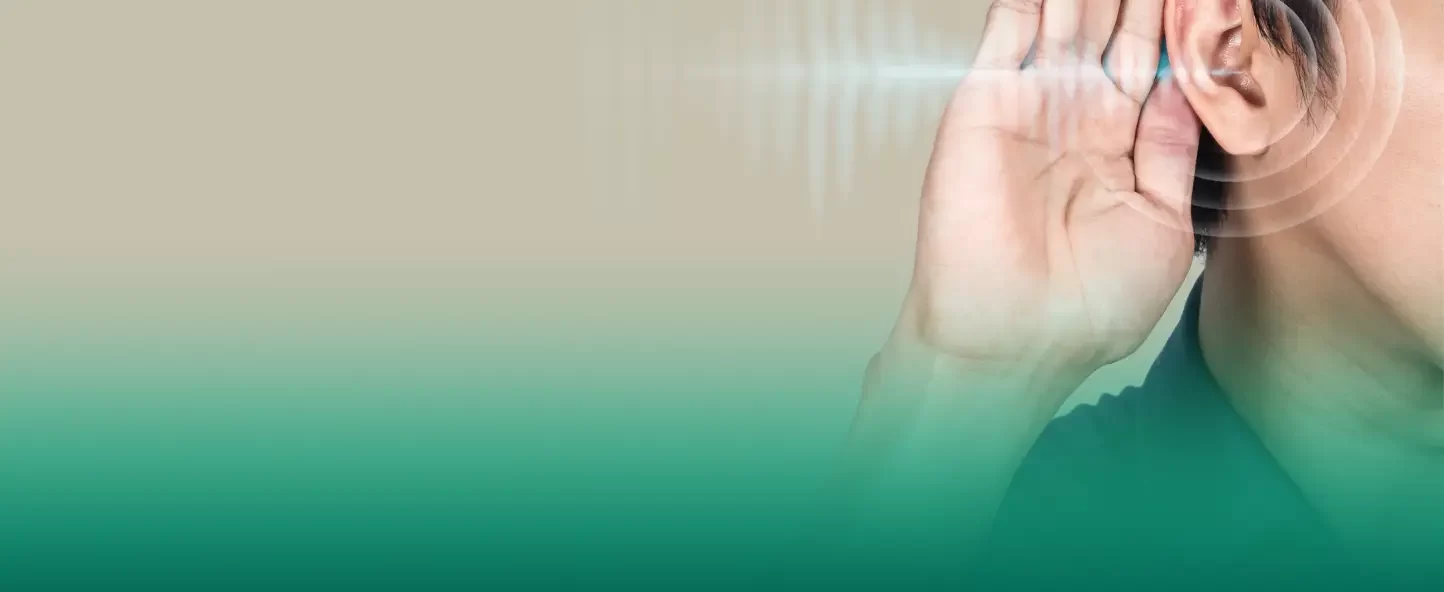Myth: Your hearing can get worse after a cold
When a cold is complicated by an ear infection, it can lead to conductive hearing loss, which temporarily impairs hearing. This process is caused by obstacles in the path of sound waves to the sensitive cells of the inner ear, caused by purulent or exudative secretions during inflammation.
In such cases, hearing is often temporarily impaired, but usually returns to normal as the hearing progresses.
When a respiratory viral infection (ARVI) leads to acute otitis media, conductive hearing loss occurs, which leads to temporary hearing loss.
This process is due to the presence of obstacles in the path of sound waves to the sensitive cells of the inner ear, caused by purulent or exudative secretions during inflammation. Typically, in such cases, hearing is temporarily deteriorated, but as you recover, it is gradually restored.
More rarely, when chronic suppurative otitis media develops, severe damage to the structures of the middle ear can occur, which can ultimately lead to irreversible hearing loss.
It is also worth considering that coronavirus infection may contribute to hearing loss, as it can cause thrombosis (formation of blood clots) in the small vessels that provide nutrition to the hair cells in the cochlea of the inner ear. This process can lead to the gradual degradation and eventual death of such cells, which in turn can affect hearing.
As a result, middle ear obstruction is possible, which ultimately leads to partial or complete hearing loss. This process is called acute sensorineural hearing loss, and, fortunately, it can be successfully treated, but only within the first 30 days after the onset of symptoms.
It is important to note that not all patients who recover from COVID-19 experience hearing loss.
However, this complication can occur in people with a hereditary predisposition.
Myth: Hearing aids will only make your own hearing worse
As a rule, patients draw an analogy with vision and glasses. But glasses do not impair vision, and the ear, in principle, works differently from the eyes.
Hearing aids do not reduce hearing, but they do not improve it either – they provide just enough sound so that a person does not strain, but hears fully.
Hearing aids are designed to correct hearing when hearing problems arise. They work on the principle of amplifying sounds so that a person can hear them better. However, they do not change the physiology of the hearing aid or the quality of hearing per se.
Hearing aids vary in type and characteristics, and the choice depends on the individual needs and characteristics of the patient. Some devices are designed to treat specific types of hearing loss, while others can be configured to work in different listening environments.
Using hearing aids can significantly improve the quality of life for people with hearing problems. They help them better perceive speech, as well as hear environmental sounds, which improves comfort and social adaptation.
It is important to note that proper fitting and regular maintenance of hearing aids play a key role in their effective use. Regular visits to your ear, nose and throat doctor or hearing aid specialist will help keep your devices functioning optimally and making them as comfortable as possible.
Thus, hearing aids are an important tool for correcting hearing problems and helping people with hearing impairments lead an active and fulfilling lifestyle.
Myth: You need to wear your hearing aids all the time
According to hearing experts, wearing hearing aids throughout the day plays a key role in maintaining healthy hearing and brain activity. It is recommended that you wear your hearing aids daily, for at least 8 hours a day, to ensure optimal functioning of your hearing system and brain.
This mode allows the brain not to lose its ability to adapt to the sound environment and maintain normal sensitivity to sound influences.
It is important to understand that regular and long-term use of hearing aids helps maintain stable stimulation of the auditory system, which is a necessary condition for its proper functioning.
If a person takes long breaks from using hearing aids or wears them irregularly, this can lead to disruption of the brain’s adaptation to sounds and deterioration in the quality of hearing.
Maintaining consistent and regular use of hearing aids is necessary to ensure that the brain remains active and adapts to different sound environments. This helps maintain not only hearing function, but also overall health and quality of life.
Myth: A person can independently perceive hearing loss
Each of us strives to maintain health and a quality life, but sometimes we need to listen more carefully to our body and pay attention to signs which it sends to us.
One such important aspect is the health of our hearing. The connection between hearing and the brain is very close, and the brain has a high adaptive capacity. When hearing decreases, the brain is able to adapt to new conditions for perceiving sounds, and a person may not realize the problems that have arisen. However, upon examination, the doctor may detect hearing problems.
If a person begins to ask questions frequently, answer incorrectly, or increase the volume of music or TV, those around him may also notice hearing problems. It is important to pay attention to these signs and do not hesitate to discuss them with your doctor. It is better to solve the problem immediately than to postpone its solution.
The brain requires constant stimulation from sounds to function properly. If hearing loss occurs, it should be compensated for with a hearing aid as soon as possible. Otherwise, serious consequences can occur, such as acoustic deprivation, when the brain begins to wean itself off real sounds.
The sooner a hearing aid is put on, the easier it will be for the brain to remember how to correctly perceive sounds.






